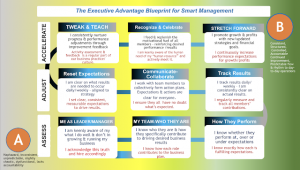— June 30, 2017

geralt / Pixabay
One of the basic etiquette rules in sales emails is, “Don’t talk about yourself.” Sounds simple, right? Actually, as it turns out, there’s more than one way to make your email obnoxiously self-focused.
It’s not just lines like, “I love this feature” or, “Our company was named coolest vendor of the year.” There are plenty of ways to end up steering a conversation back towards yourself, and we often don’t realize we’re doing it until we’ve hit the “send” button.
But for every different way you can talk about yourself and your business, there are also steps you can take to avoid that trap. Here are a few strategies I use on a regular basis.
1. Limit the information you share.
Whether you have a simple product or a complex service, your sales emails should only focus on one concept. This could be a benefit, a pain point, or an idea. Resist the temptation to cram your email full of features and benefits. This is overwhelming and will lower your chances of getting a response.
Also, ask yourself why you’re focusing on a particular benefit or pain point. Will it help your prospective buyer or do you just like talking about it? I find that taking a minute to check for this helps me know exactly which idea to present to a buyer and why they’ll relate to it.
2. Keep it simple.
Sales language has to appeal to a wide range of people, even to the same audience of buyers. To ensure that happens, keep things as simple as possible.
Use everyday words and don’t try to sound like you’ve just swallowed a dictionary. Instead of a wordy sentence like, “It’s imperative you don’t leave your software investment in the hands of incidental fortune,” just write, “Your software investment is too critical to leave up to chance.” Your sales prospects need to understand your message immediately. A phrase like “incidental fortune” might sound good in a work of fiction, but it will only confuse your potential buyers. If you’re wondering whether a sentence is too complex, it probably is.
There’s also the temptation to add in “clever” lines you find hilarious. Sales emails are not the place to test your jokes. Most of the time you will just come across as narcissistic or annoying, and if humor isn’t your forte, you’ll look ridiculous. Same goes for using overly complicated jargon and obscure cultural references that may not be familiar to the audience. Your sales prospect doesn’t care how smart you are; they only care if you can solve their problems or add value to them.
3. Don’t show off.
Bragging lines like, “My company started this trend” or “Our service will revolutionize the industry” can sneak into emails all too quickly. It’s natural to want to share exciting new plans or some recent praise your company received. But most of the time, that excitement doesn’t come across in emails. Your prospective buyers will instead read it as an egotistical announcement that won’t help them solve a business problem. They’ll move on to the next message without responding to yours.
One way to keep this in check is to reread the email before you send it and count up the number of times “I,” “me,” or even “we” appear. It only takes a couple minutes and can make a huge difference to the tone of your email. And it’s a bit of a no-brainer: if you see the word “I” multiple times, you’ll know without question your email is focused on you, not the buyer.
Finally, remember the biggest reason we default to talking about ourselves is that it’s a lot easier than trying to solve the buyer’s business problem. Whether you’re tired, lazy, or can’t find the right words, it’s tempting to dash off an email without considering the recipient. Resist that temptation. Take the time required to focus on the other person, because will ultimately help your emails stand out and close more deals–something no amount of self-promotion can accomplish.
Digital & Social Articles on Business 2 Community
(23)





